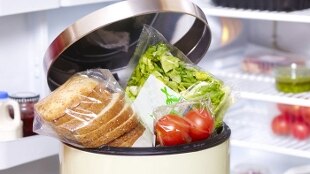World Food Day, Mattarella: "Fundamental rights include the right to food"
Food that is wasted, food that is missing, food that we really need
Share
05 February 2021 "In the year of Covid and new forms of poverty, in the year that reminds us of the urgent need for a concrete change in sustainability in relation to human health and the environment, from the eighth National Day of Prevention of food waste a precise proposal is born, measurable in terms of objectives and tools: Recovery Food. ”It could not start from today where everything changes second by second, where planning is difficult, but above all where many knots have come to a head the economist Andrea Segrè, creator of the day to propose "a permanent laboratory of food and environmental education for the training of citizens and for raising awareness by public bodies and businesses".
It is our "gift" - he explained - for the government to come: the hope is that Recovery Food will find space in the National Recovery and Resilience Plan as a special chapter of the Recovery Fund, where the issues related to food and waste prevention should be treated with specific attention ".
"Recovery Food - Andrea Segrè explained in detail - focused on food, health and sustainability, should include an organic forecast of the resources destined to the training of citizens in food and environmental education. Starting from schools, therefore with resources destined to teachers in the field since the first cycle of Primary School, and with a capillary and national network connected to the Municipalities for concrete initiatives, aimed at raising awareness among citizens about the binomial food and health, for man and the environment ".
UN attention
"Food education is a priority issue on the international political agenda. The commitment of the United Nations Organizations will be to highlight the relationship between food and identity because nutrition is above all an act of culture and respecting the food also means safeguarding our food traditions ".
Vincenza Lomonaco, ambassador to the Permanent Representation of Italy of the United Nations Organizations, spoke about protection and respect, speaking at the eighth edition of the National Food Waste Prevention Day, in an online seminar promoted by Sprecozero.net.
"The Mediterranean Diet - said Ambassador Lomonaco - is based on sustainable production and is a winning model in the fight against waste with its indications on the correct portions, the variety of fresh and local ingredients, and the many recipes for reuse. of leftovers ".
The analysis of the CIA-Italian Farmers
66% of Italians know that there is a double knot between food waste, human health and the environment.
This was underlined by the CIA-Agricoltori Italiani in recalling that in the year of the pandemic, waste decreased by almost 12%.
"An important result to be capitalized - explains CIA - to aim towards the sustainable development objectives of the 2030 Agenda, thanks also to the inputs of the EU Green Deal".
For this reason, the indications of the European 'Farm to Fork' strategy, which provides for a sustainable food system to guarantee safety and access for all to healthy and safe food, are all the more necessary.
This is an area where agricultural companies do and can still do so much, which have always worked for the recycling and reuse of agricultural waste in a circular economy perspective.
Finally, for the CIA, it is essential to regain efficiency in the use of resources and to support all public and private initiatives for the recovery and donation of unsold food products.
Coldiretti, 25% cut is food for 4 million poor
By reducing Italians' food waste by 25%, it is possible to put at the table properly about 4 million poor people who with the Covid emergency are forced to ask for help for food with food packages or free meals in the canteen or in their own homes.
It is Coldiretti's analysis.
In 2020 there are 5.2 million tons of finished food in the garbage between what is thrown at home and what concerns the entire supply chain, for a value of 9.7 billion euros.
To household waste which, according to Coldiretti, represent 54% of the total in value, must be added those of catering (21%), commercial distribution (15%), agriculture (8%) and processing (2%).

